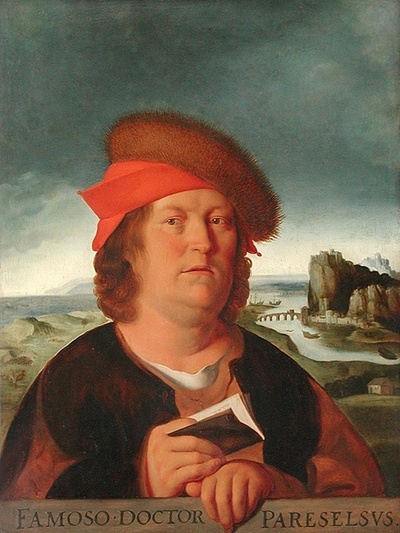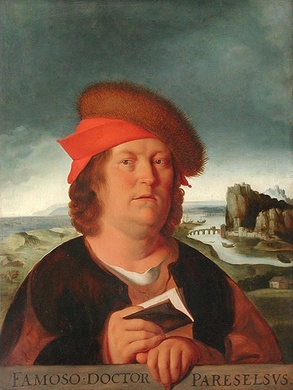
Paracelsus, born Philippus Aureolus Theophrastus Bombastus von Hohenheim, was a German-Swiss alchemist, physician, and botanist and a contemporary of Copernicus, Leonardo da Vinci and Martin Luther. He was openly defiant toward the medical authorities of his day. As a professor of medicine, he angered many of his colleagues by lecturing in German rather than Latin. He believed medical knowledge should be made available to the common people. He argued for a humanist approach, saying, "The patients are your textbook, the sickbed is your study."
Paracelsus is credited with inventing laudanum (a concoction made from dissolving opium in alcohol). While he was not the first to experiment with opium and alcohol, his particular formula seemed useful in reducing pain. His preparation contained opium, crushed pearls, musk, amber, and other substances. Laudanum remained largely unknown until the 1660s when the English physician, Thomas Sydenham, developed a proprietary opium tincture that he also named laudanum, although it was quite different from the laudanum of Paracelsus.
Paracelsus is also known for his famous quote, "Poison is in everything, and no thing is without poison. The dosage makes it either a poison or a remedy."
Source: Davenport-Hines, R. (2004). The pursuit of oblivion: a social history of drugs
| Drugs: | Opium (morphine, heroin, opioids) |
|---|---|
| Regions: | Europe, Germany, Switzerland |
| Topics: | Medicinal use of drugs |
